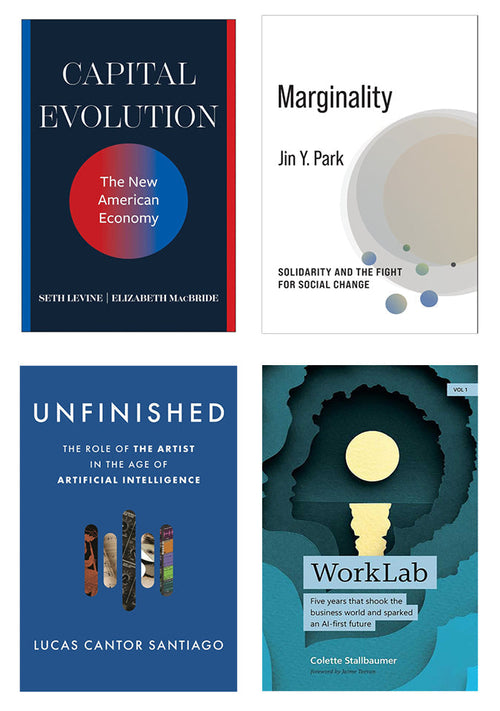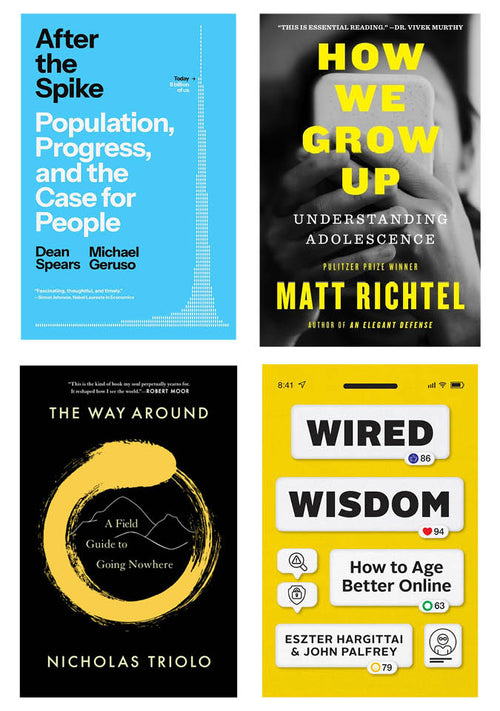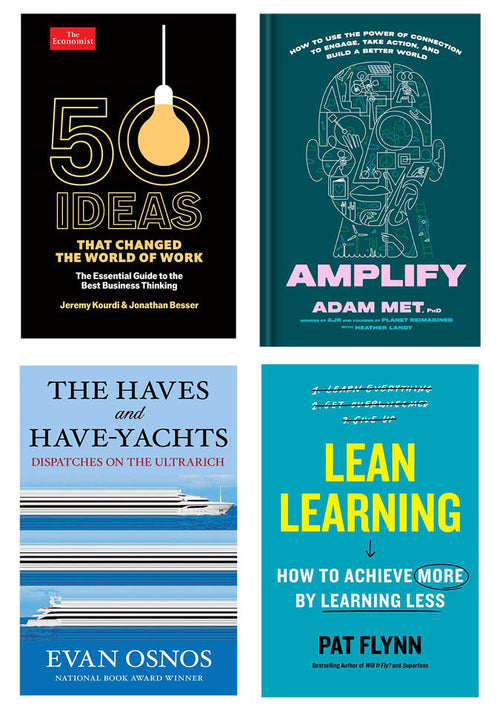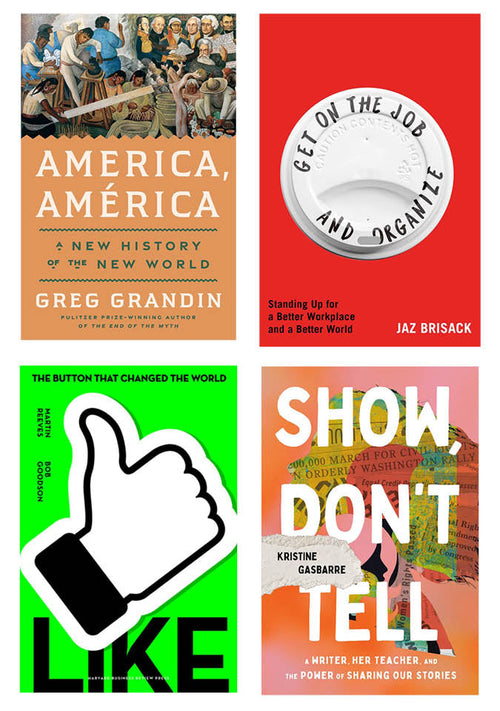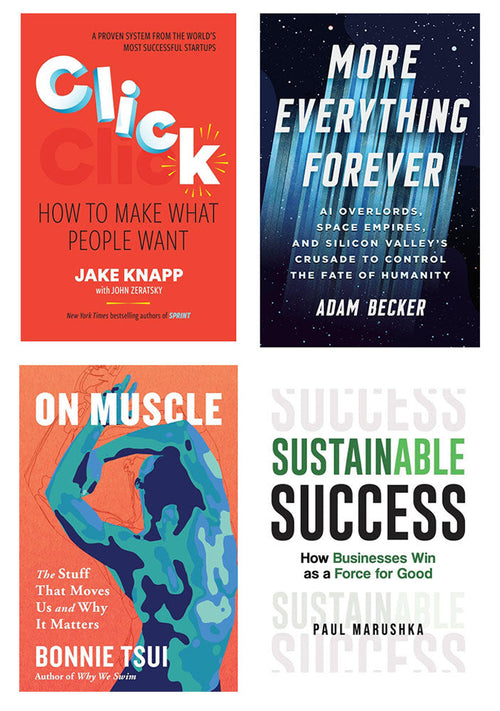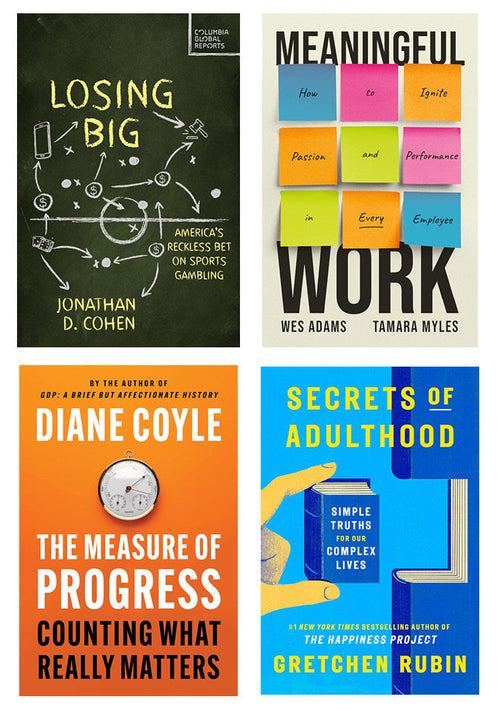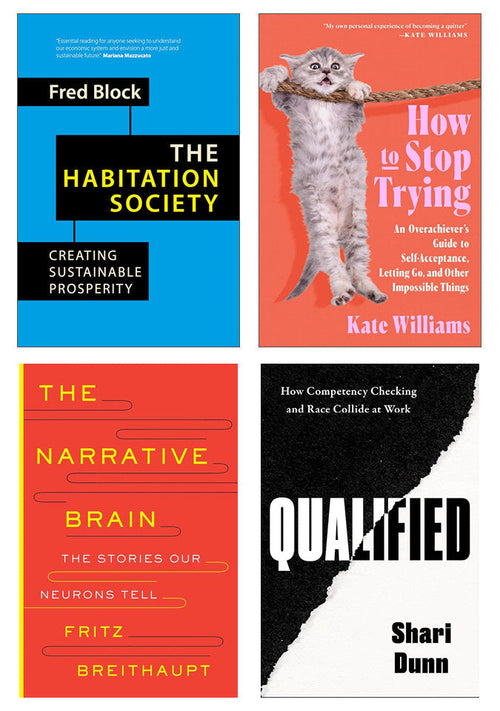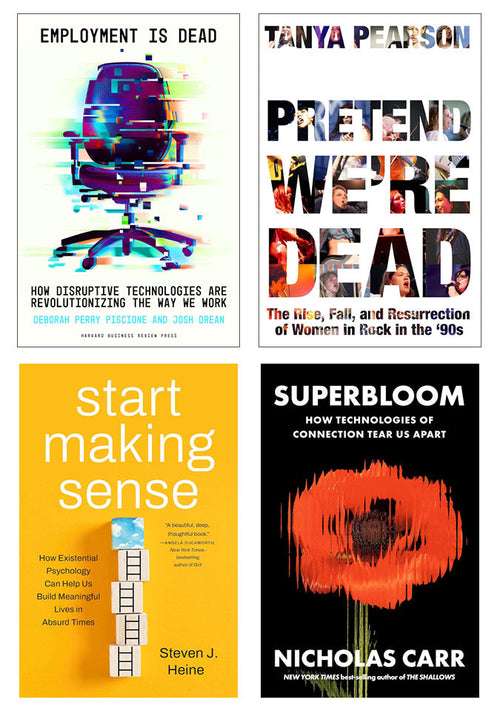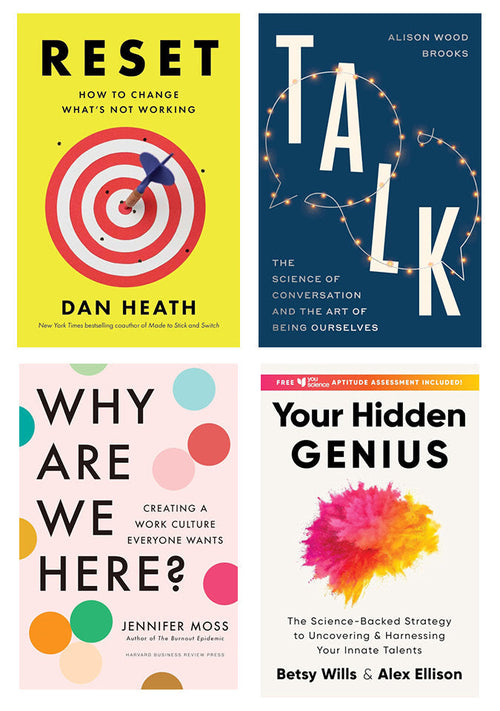New Book Releases for the Week of August 6, 2024
Featuring new book releases from Paul Collier, Ellen Ruppel Shell, Dr. Ala Stanford, and Jordan Chariton.
Finding the right book at the right time can transform your life or your organization. As expert booksellers, we help you discover your next great read by showcasing four recently released titles each week.
The books are chosen by Porchlight's Managing Director, Sally Haldorson, and the marketing team: Dylan Schleicher, Gabbi Cisneros, and Jasmine Gonzalez.
(Book descriptions are provided by the publisher unless otherwise noted.)
Our Recommended Books This Week

Sally’s pick: Left Behind: A New Economics for Neglected Places by Paul Collier, published by PublicAffairs
Since the 1970s, the Western consensus in economic policy has been governed by the assumption that any poor area—a city, a state or even an entire country—will find a way to progress through market forces. If local economies fail to revive, and market shifts have made a location unsuited to business needs, the workforce can and should relocate to more prosperous locales. Either way, no outside intervention is necessary: one way or another, the problem will work itself out.
Except it doesn’t. Using examples of the “left behind” regions, renowned development economist Paul Collier shows that centralized western economies have been the most ineffective to alleviate poverty—even if nationally the country seems to be growing. South Yorkshire, once a hub of the steel industry, is now the poorest region in England. From the United States to Japan, Zambia to Colombia, regions and nations experiencing economic decline find themselves with little recourse, ignored by the powers that could come to their aid.
In Left Behind, Collier examines how this one-size-fits-all, hands-off approach to economic policy has devastated areas and nations all over the world and made society vastly more unequal. With keen insight, he draws lessons from such disparate fields as behavioral psychology, evolutionary biology, and moral philosophy to explain how we can adapt to the needs of individual economies in order to build a brighter and fairer global future.
Dylan’s pick: Slippery Beast: A True Crime Natural History, with Eels by Ellen Ruppel Shell, published by Abrams Press
What is it about eels? Depending on who you ask, they are a pest, a fascination, a threat, a pot of gold. What they are not is predictable. Eels emerged some 200 million years ago, weathered mass extinctions and continental shifts, and were once among the world’s most abundant freshwater fish. But since the 1970s, their numbers have plummeted. Because eels—as unagi—are another thing: delicious.
In Slippery Beast, journalist Ellen Ruppel Shell travels in the world of “eel people,” pursuing a burgeoning fascination with this mysterious and highly coveted creature. Despite centuries of study by celebrated thinkers from Aristotle to Leeuwenhoek to a young Sigmund Freud, much about eels remains unknown, including exactly how eels beget other eels. Eels cannot be bred reliably in captivity, and as a result, infant eels are unbelievably valuable. A pound of the tiny, translucent, bug-eyed “elvers” caught in the cold fresh waters of Maine can command $3,000 or more on the black market. Illegal trade in eels is an international scandal measured in billions of dollars every year. In Maine, federal investigators have risked their lives to bust poaching rings, including the notorious half-decade-long “Operation Broken Glass.”
Ruppel Shell follows the elusive eel from Maine to the Sargasso Sea and back, stalking riversides, fishing holes, laboratories, restaurants, courtrooms, and America’s first commercial eel “family farm,” which just might upend the international market and save a state. This is an enthralling, globe-spanning look at an animal that you may never come to love, but which will never fail to astonish you, a miraculous creature that tells more about us than we can ever know about it.
Jasmine’s pick: Take Care of Them Like My Own: Faith, Fortitude, and a Surgeon's Fight for Health Justice by Ala Stanford, M.D., published by Simon & Schuster
Dr. Ala Stanford knew she wanted to be a doctor by the time she was eight years old. But role models were few and far between in her working-class North Philly neighborhood. Her teachers were dismissive, and the realities of racism, sexism, and poverty threatened to derail her at every turn. Nevertheless, thanks to her faith, family, and the sheer strength of her will, today she is one of the vanishingly small number of Black women surgeons in America—and an unrelenting force in the fight for health justice.
In Take Care of Them Like My Own, Dr. Stanford shares an unflinching account of her story, explaining how her experiences on both sides of the scalpel have informed her understanding of America’s racial health gap, an insidious and lethal form of inequality that exacts a devastating toll on Black communities across the country, affluent and underserved alike.
When Covid-19 arrived in her hometown of Philadelphia, she knew it would disproportionately affect the Black population. As the city stood idly by, unwilling or unable to protect its most vulnerable citizens, Dr. Stanford took matters into her own hands. She rented a van, made some calls, and began administering tests in church parking lots. Soon, she found herself at the helm of a powerful grassroots campaign that successfully vaccinated tens of thousands of Philadelphians. She and her movement are living proof that by drawing on faith, community, and inner strength, everyday people can affect tremendous change.
Part memoir, part manifesto for health equality and justice, Take Care of Them Like My Own offers urgent lessons about the power of communities working together to take care of one another and the importance of fighting for a healthcare system that truly fulfills its promise to all Americans.
Gabbi’s pick: We the Poisoned: Exposing the Flint Water Crisis Cover-Up and the Poisoning of 100,000 Americans by Jordan Chariton, published by Rowman & Littlefield
From crooked Wall Street financial schemes to political payoffs, destruction of evidence, witness tampering, falsified water data, threatened whistle blowers, and panicked phone calls, We the Poisoned: Exposing the Flint Water Crisis Cover Up and the Poisoning of 100,000 Americans reveals, for the first time, the real story behind how the government poisoned a major American city—and how they are still getting away with it.
As the cover-up continues a decade later, innocent residents have been arrested, surveilled, threatened, and gaslit to feel like they are crazy. With more and more sick residents slowly dying every year, Flint’s lead levels again on the rise, and cancer rates surging across the city, it is time for the true, sinister story of the Flint water cover-up to be told. Based on eight years of reporting, thousands of confidential documents from the criminal investigation, and the former governor of Michigan’s own words under oath, Jordan Chariton takes readers on the road to crisis before the Flint River switch—when government officials blew through all stop signs and orchestrated a financial scheme that allowed a nearly bankrupt Flint to borrow $100 million for a controversial new water system. As brown, smelly water flowed through Flint homes and residents grew sick, politicians intentionally and knowingly allowed Americans to drink poison as they prioritized their own political ambitions and survival. Just when you think the levels of callousness and disregard for the people can’t drop any lower, Chariton digs even deeper to expose one of the biggest government cover-ups of the twenty-first century.
We the Poisoned is a cautionary tale about “run-government-like-a-business” leaders who champion privatization and economic development at the expense of the environment, public health, and vulnerable citizens. Perhaps even more important, with water and environmental contamination surging across the US, Chariton’s revelations provide a road map for how to fight back and prevent similar tragedies from happening to other communities.
Buy these recommended new book releases and more directly from Porchlight Book Company.
Are you interested in buying multiple copies of the same book? We offer bulk discounts and flexible shipping, ideal for book clubs, employee resource groups, and other reading communities. Browse our product catalog or contact our customer service team to request a quote. Happy reading!



